The last waterfall that you'll want to see is the one dripping on your split AC. Aside from being unpleasant to the eyes, it can signify a serious problem for your appliance. But don't worry! We've researched what you should do when it happens.
You have to turn off the indoor system when you see water continuously dripping from your split AC. Stop using the unit and contact your local HVAC technician. The most common solutions they'll recommend depending on the cause of the leak include cleaning the drain pan and filters, unclogging the drain line, reinstalling the AC, or replacing the drain pan.
Curious which troubleshooting applies to you? Keep on reading to find out more. We'll discuss everything you need to know about your split air conditioner dripping water indoors.
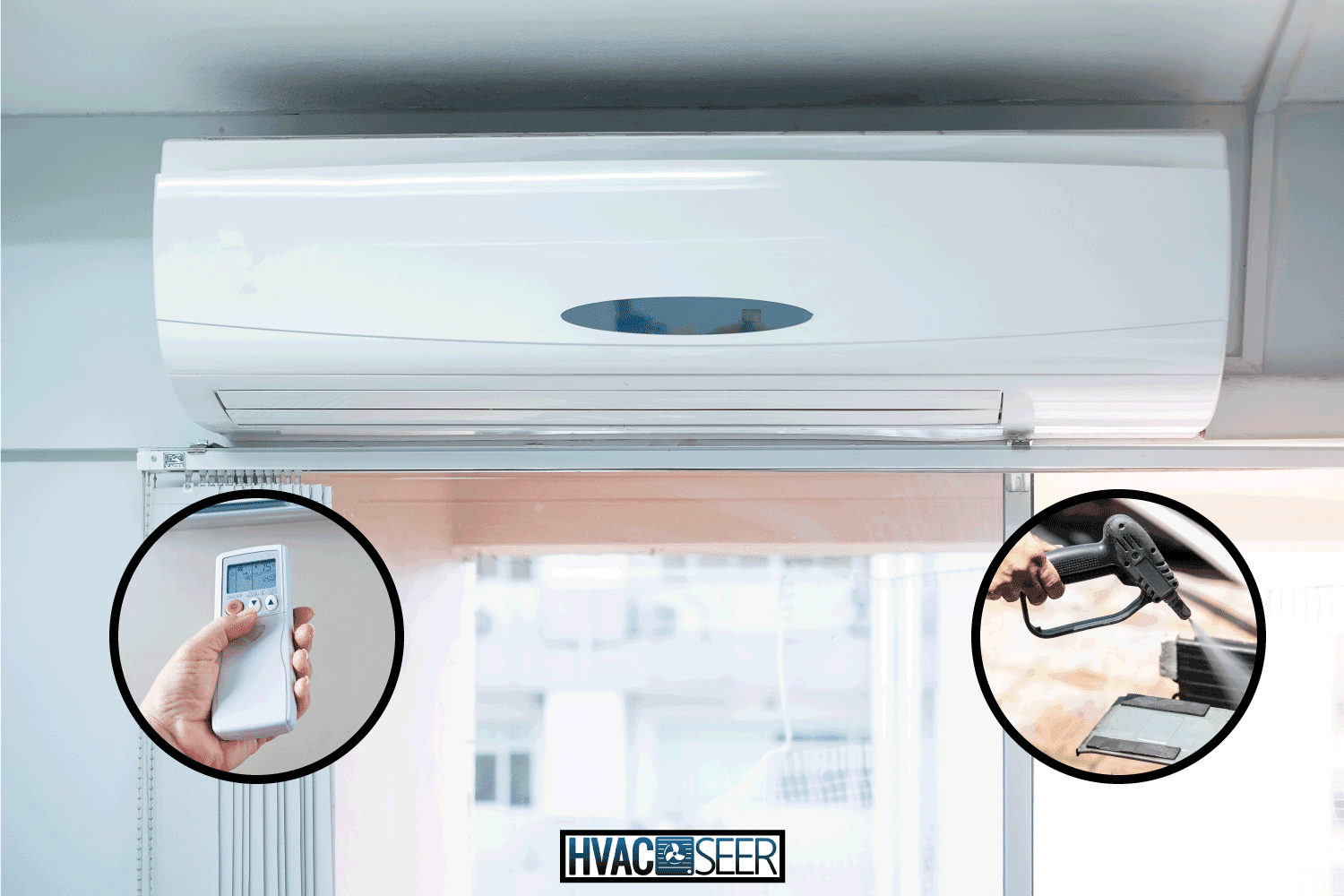
How Do I Stop My Split AC From Leaking?
Fortunately, leaking is one of the most common problems air conditioning systems encounter. There's no need to fret since solutions can be simple. But before we elaborate on how to troubleshoot the problem, let us first find out why your AC is leaking water.
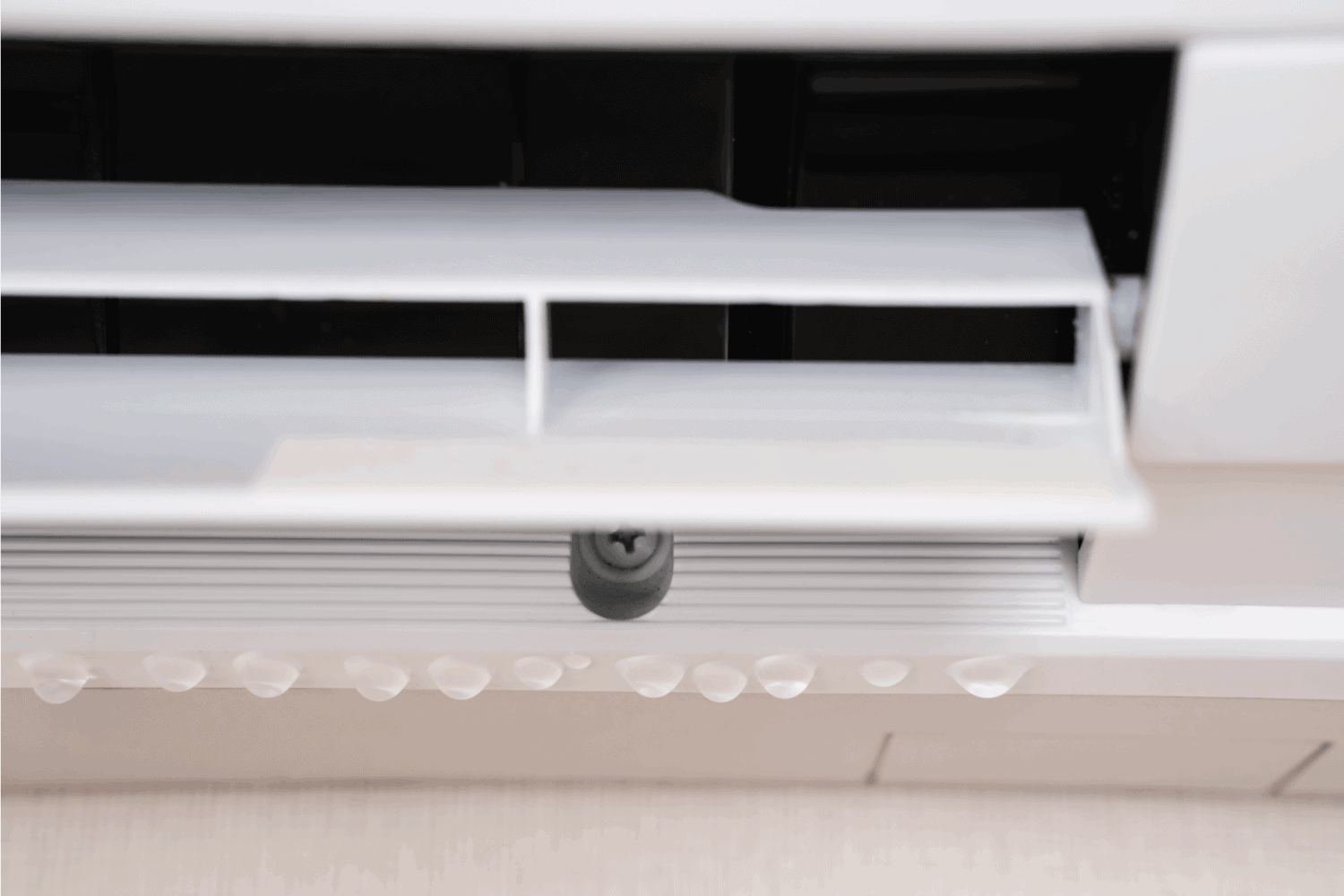
Reasons Why Your AC is leaking Water
- The condensation drain line is clogged. Blockage formed by dirt debris collected during the dehumidification process clogs the drain line, causing the water to spill out.
- The drain pan is damaged. This pan serves as the bridge where condensed water travels to get to the drain line. The drain pan is located under the evaporator coil. Check to see if it is corroded or rusty.
- The drain line is not properly attached. It may have become loose or disconnected.
- The float switch is broken. The float switch triggers the condensate pump to drain the water reservoir to the outside of your home. If it is broken, the pump won't have a signal to release the water, resulting in a leak.
- There is condensation buildup. Excess condensation occurs during summer when humidity is high.
- The evaporator coils are broken. They freeze up when airflow is blocked. This can lead the drain pan to overflow due to the increase in moisture.
- The air filter is dirty. Once filled with air pollutant particles and dust, warm air cannot be passed easily. Hence, the evaporator coil will freeze because the refrigerant can't absorb the heat.
- The AC was installed incorrectly. One common mistake is that drain pipes might not be balanced.
How To Fix An AC Leaking Water
Turn off the AC indoor unit first before you proceed with troubleshooting these various potential issues below:
Clogged Drain Line
Pour water into the drain line and clean it to prevent mold buildup. Then remove the buildup using a long brush. Scrub it thoroughly and pour in a little amount of water. If it flows towards the other side smoothly, that means it's clean already.
Damaged Drain Pan
Clean the drain pan first before checking for any cracks. If you spot a crack, patch it using a high-quality water-resistant sealant. Test if the job is successful by running water smoothly again to the surface. Rusty drain pans should be replaced with the same size.
Condensation Buildup
Insulate the ducts to prevent the water from leaking out.
Frozen Evaporator Coils
Airflow blockage requires cleaning of the air filters, return vents, ducts, etc. This will prevent the drain pan from overflowing.
Dirty Air Filter
Clean the air filter thoroughly with water and a brush. Make sure that it's completely dry before putting it back to where it was.
Incorrect Installation
If the AC is not on a level surface, use an AC pad.
Other problems like a broken float switch or condensate pump and disconnected drain lines should be handled by a professional. Call a licensed HVAC technician to conduct the repair.
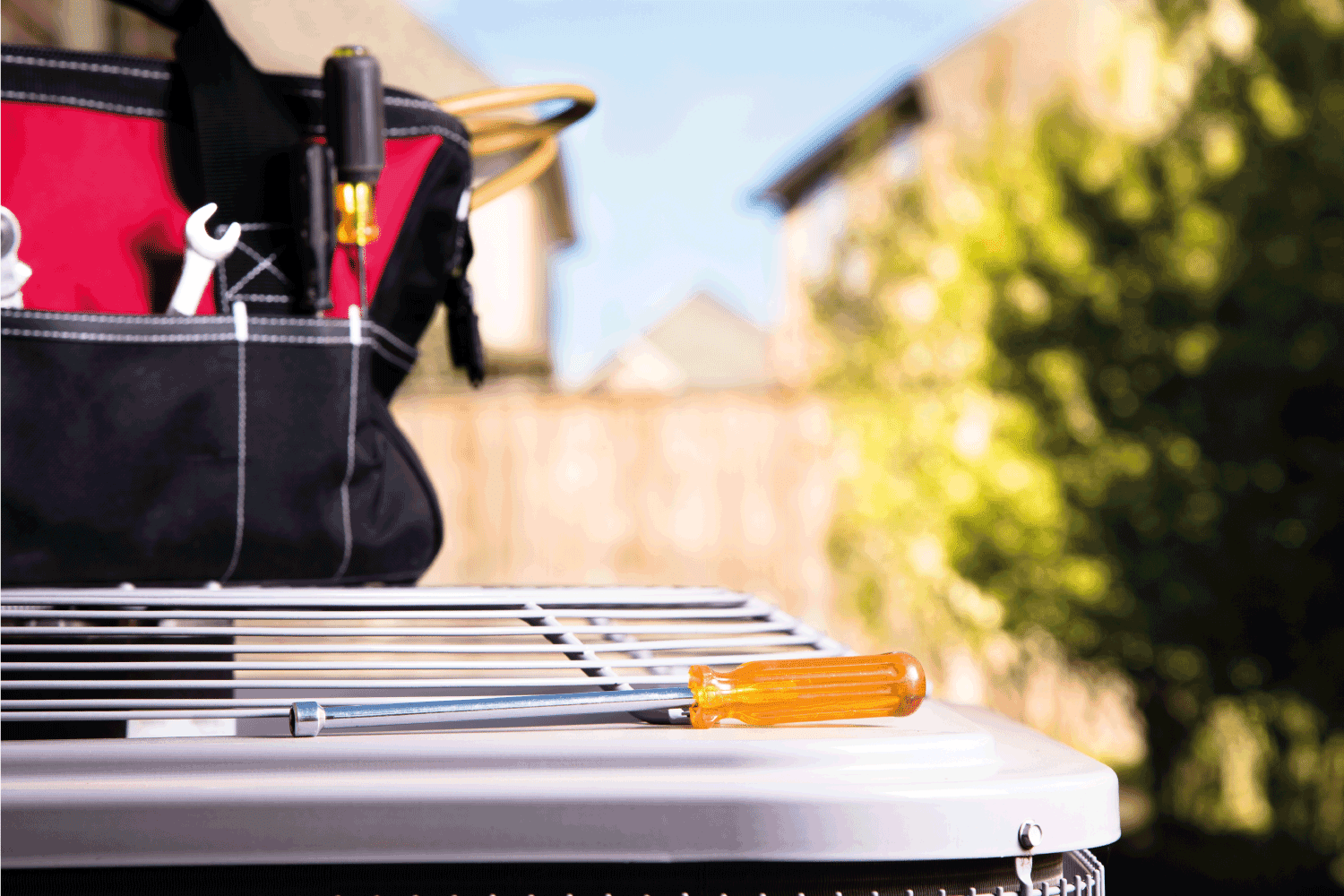
How Much Does It Cost to Fix an Air Conditioner?
The average cost of repairing an air conditioner ranges from $200 to $4,000. It differs depending on the complexity of the project and the type of unit. Let's break down where those dollars go.
AC Repair Cost According To Project Range
- Low (Filter unclogging, system reboot): approximately $175
- Average (Filter unclogging, system reboot, Servicing, and cleaning): approximately $350
- High (Drain cleaning, servicing, and coolant checking): approximately $500
AC Repair Cost According To Unit Type
The following are the average professional costs, labor included:
- Window AC: $50 - $125
- Portable AC: $80 - $250
- Central Air: $100 - $500
- Swamp Cooler: $125 - $500
- Geothermal Air Conditioning: $200 - $700
- HVAC Package Unit: $300 - $500
- Ductless Mini Split: $750 - $900
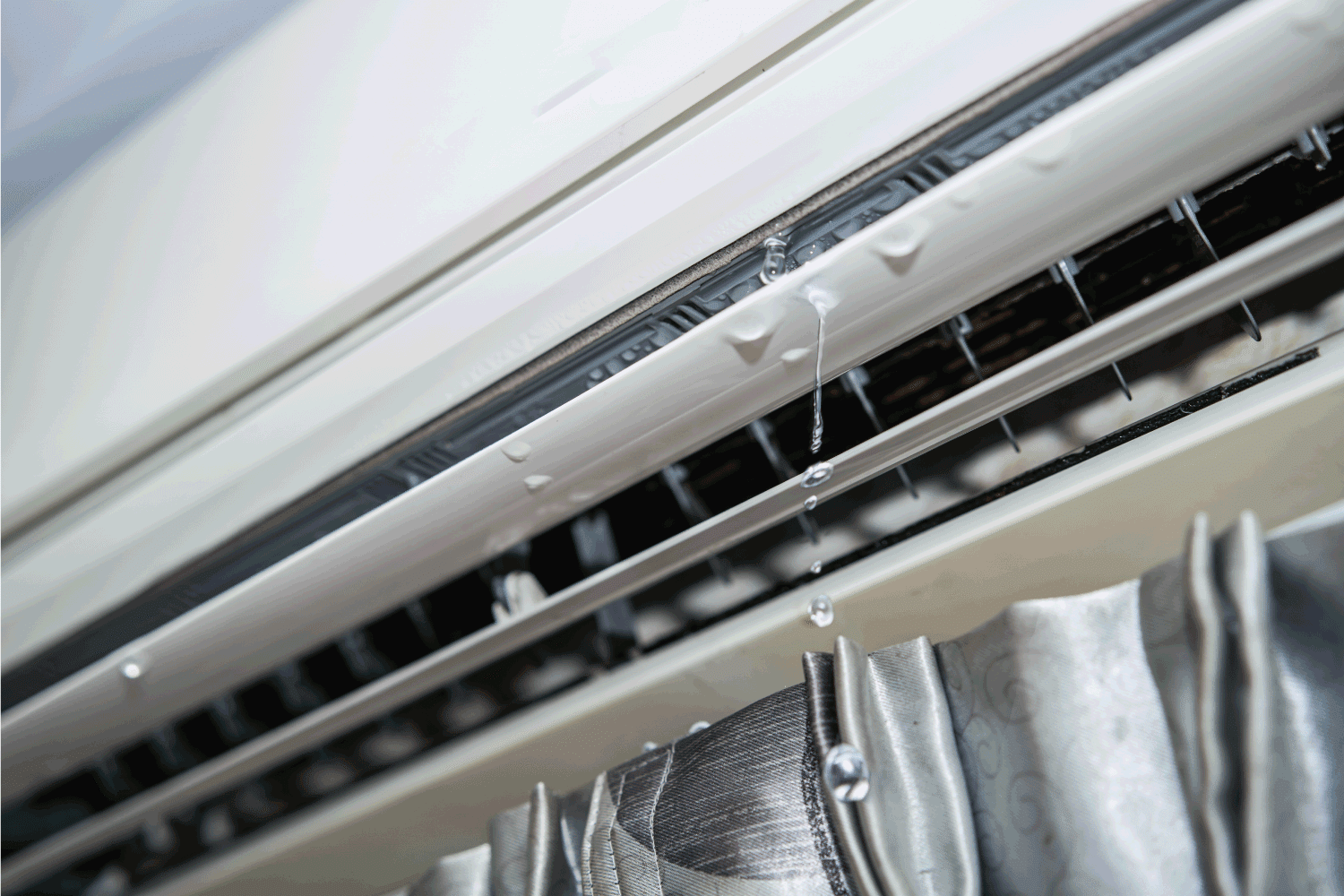
Is The Water That Comes Out Of AC Toxic?
Yes. Water that comes from the air conditioner should not be ingested. It is harmful to people since it is a condensed liquid filled with byproducts of air pollutants collected in your home. Here are other reasons why it's toxic:
- It contains indoor air pollution like mildew, fungal spores, human discharge, chemicals from appliances, etc.
- The inside of the AC is not sanitized as it has no water treatment or purification features.
Is It OK To Use AC When Water Is Leaking?
Yes, it is safe to use AC when water is leaking. However, continuous usage without repairing it may cause more damage to the appliance as well as the walls and floor where the water is dripping.
How To Prevent AC From Leaking Water
Here's a list of what you can do to stop the problem from coming back:
- Make sure that it's properly aligned. A window unit's front side should be an inch higher than at the back. This is to make the leak pour out of your house instead of leaking inside.
- Conduct regular cleaning of air filters, especially if placed in an area prone to air dirt or dust. Clean air filters allow the air inside to circulate properly.
- Unblock the drainage hole located at the back of the AC. Its purpose is to keep water flowing out correctly.
- Regularly check if there is ice forming in the cooling coil.
- Replace your refrigerants. A low level of it can make it difficult for the AC to cool a room.
- Have the AC checked by a professional from time to time to ensure that there is no problem occurring or if there is, an immediate repair can be done.
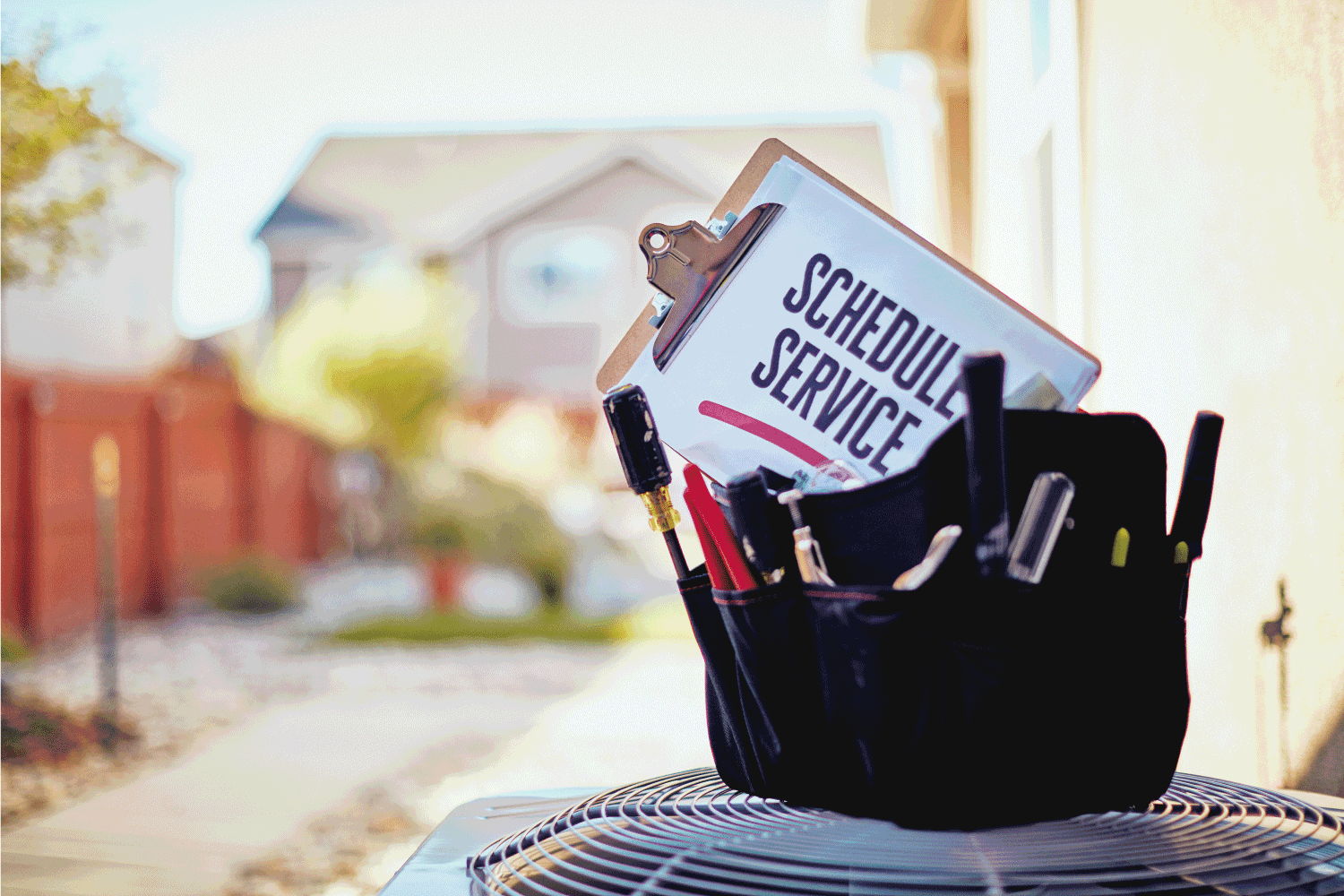
How Often Should An AC Be Serviced?
Clean different parts of your AC according to these recommended schedules:
- Filters: Once a month when used frequently (twice if not).
- Coils: Every six months if frequently used. If not, clean it once a year only.
- Condensate drain: Once a year.
How Long Does An AC Last?
The lifespan of your AC depends on many factors such as the frequency of usage, how it is maintained, or if it has the right CFM for where it is being used. Modern air conditioner units can last from 15 to 20 years while older ones last from 10 to 12 years.
Signs Your Air Conditioner Needs To Be Replaced
Your AC may need to be replaced if you see the following signs:
- Your AC is not producing cold air anymore.
- The airflow it produces is not as powerful as it once was.
- A large pool of water gathers around your AC.
- The AC is running noisily.
- The thermostat is not working anymore.
- It has been used for more than 10 to 15 years.
- The AC is breaking and needs repair often.
Read more here: Portable Air Conditioner Making Rattling Noise—What To Do?
What Type of Unit is Best for My Home?
If your AC cannot be fixed and you decided to replace it instead, here are some factors you should consider to get an AC that will serve your needs.
- How Much Is Your Budget? The cheapest option is a window or portable AC, but these only cool a standard room. Geothermal units have the highest tag but it has the longest lifespan (up to 25 years). There are also plenty of options in between.
- What's The Area Of The Space It Will Cool? It is important to choose an air conditioner that has the capacity equivalent to the size of the area it will cover.
- Where Do You Live? Experts recommend using AC with a seasonal energy efficiency ratio (SEER) of 15 in hot and humid locations. SEER is the measurement of the amount of energy the AC uses to cool a home.
- How Long Is The Offered Warranty? Consider those with a long warranty that covers the major parts of your AC.
- Is It Energy-Efficient? Check if it's energy efficient. This will save you money in utility costs.
Learn more about AC here: How To Dehumidify A Room With Air Conditioner
In Closing
Now that you know what to do with a split AC that's dripping water, you must have also realized that proper care prevents the appliance from breaking down. It'll keep you cool and will save you the money you might spend on repair or replacement.
